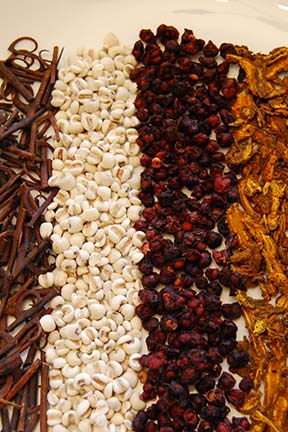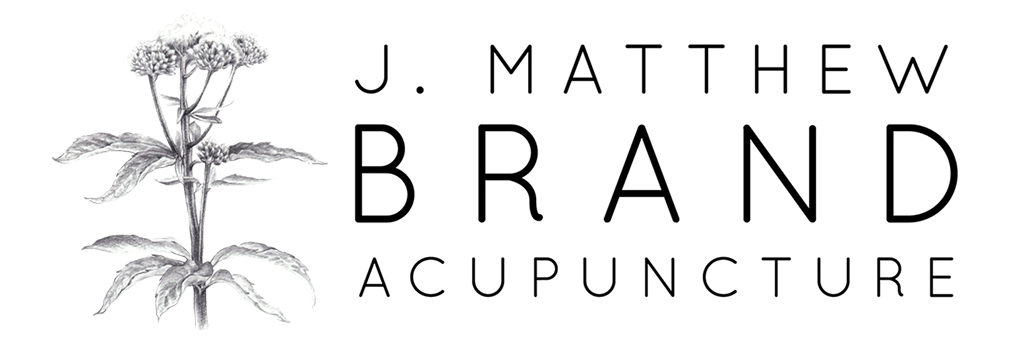
Chinese Herbal Medicine

Herbal medicine is an integral part of Chinese medicine. Many TCM practitioners will use cupping and tuina to treat muskuloskeletal issues (see below), acupuncture to treat channel pathologies, and herbal medicine to treat internal diseases of a more systemic (or organ-related) nature. In practice, we can do combination of therapies and use herbal medicine for topical applications (as with the use of pain patches and ointments, as in the ever-popular Tiger Balm), as well as for internal use (ie, in a consumable form).
When taking herbal medicine, it may be administered in several ways:
- Packets of dried herbs are given to the patient for them to cook in a (preferably) ceramic pot for anywhere between 20-90 minutes, after which the resulting “tea” is strained and consumed when warm.
- Packets of cooked and dried herbs are given to the patient to then dissolve in hot or warm water, resulting in a tea that is essentially the same thing as the type cooked at home.
- Herbal supplements are given to the patient in a pill or capsule form, which is then taken in the same manner any other supplement would be taken.
The advantage of drinking an herbal tea is its delivery system: in liquid form, the medicinal qualities of the herbs are much more quickly absorbed by the digestive system and, ultimately, the blood stream than if the body were required to break down the contents of a pill for the medicine to become available. That said, many Americans are not used to the taste of the herbal teas and tend to find them bitter (although many have reported to me that they came to enjoy the flavor). The obvious benefit of herbal supplements are the ease of use and portability when going about one’s busy day. Supplements are no less effective.
Because of the wide variety of species used in Chinese herbal medicine (the standard Materia Medica used in Chinese medical universities contains over 450 substances), most, if not all, herbs are grown and harvested in China. While there are a growing number of farms in this country that are looking to provide certified Organic Chinese herbs to the public, they aren’t yet at the point of being able to meet the market’s demands. This isn’t to say that the quality of products from China is sub par. Far from it. Herbal products that are produced at any of the major pharmaceutical plants in China or Taiwan undergo strict testing regiments, where herbs are individually tested for authenticity, quality, heavy metals, pesticides, molds and bacteria.
While Chinese herbal medicine has a bad reputation of using endangered species (from tiger bones to bear gallbladder), there are many plants that easily serve as replacements for such substances. Most modern-day TCM practitioners are aware of this and do not give into the perception that only the most exotic and rare of elements will benefit the ill. Chinese medicine is not magic and we do not make potions. Herbs are always combined with two things in mind: the individual’s constitution and his/her illness. By using the principles of TCM may we effectively and concretely treat a myriad of diseases and disorders.
For more information about organic farming of medicinal plants, please visit the Strictly Medicinal Seeds and Chinese Medicinal Herb Farm websites.
For information regarding the testing of herbal products, please visit TCMZone, KPC Herbs, Evergreen Herbs, or Sun Ten websites.
For an interesting and thorough discussion of Chinese herb growth and cultivation, please visit Eric Brand’s website (no relation).
